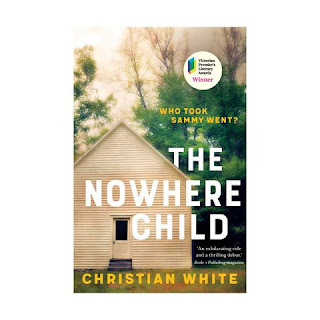Book review: The Childhood of Jesus by JM Coetzee
 The Childhood of Jesus is a beautifully written book as you would expect from an author who has won the Nobel Prize for Literature and two Booker Prizes.
The Childhood of Jesus is a beautifully written book as you would expect from an author who has won the Nobel Prize for Literature and two Booker Prizes.But did even JM Coetzee reach his limit in his daring attempt to write a book with such a searching title? Maybe, but then we have the age-old philosophical question, can the created express without limit the qualities of the Limitless? But to the book...
Is this a retelling of the hidden years of Jesus' childhood? Is the title more metaphor, allegory or descriptive? Are we learning about childhood, family, refugee, society, community or the psychosocial complexity of the individual? Are we seeing the plainness of a world without the divine spark or the goodness of a simple life?
To be honest, it is all and none of these and I'm not entirely sure if there is a single motivation or intention from the author. And perhaps that's the beauty of a great writer, they do not need to tell, but keep that secret to themselves.
If I had to guess or decide for myself... I think the story of Simón and David - who arrive to these new names via a refugee camp in a nameless country where they must be washed clean of the past and start new lives while searching for David's mother - is a an imagining of how it must have been for a child who was with parents who were in a way not his parents.
Simón takes responsibility for the small boy on the boat on the way to their new land, and he believes instinctively, he'll recognise David's mother even though neither of them know her by sight or name.
This sounds something like the Holy Spirit seeking and hovering over a woman who would become the mother of God.
David, for his part appears to be an exceptional child. Is this merely because he has not been properly disciplined or parented? Is it because he doesn't know who he is or who belongs to and so is whimsically unhinged? Or is their a sign of a special authority and unusual powers that Coetzee allows to seep into his character?
Jesus, born in the line of David, as a child may well have grappled with the challenges of being a wandering refugee whose parentage was shrouded in mystery and to whom the adults in his life were obedient. There are signs of this in Coetzee's story, but there are tangents.
And the chosen mother, Inês, is a virginal women whose name means holy, chaste, pure, as Mary was. She is devoted as a mother, although seems to be determined to create the boy in her own image, perhaps also like Mary at times, a perennial human problem when it comes to relating to God, who is in fact, the one with the indomitable image.
Or thinking differently, perhaps this is really a tale of the impoverishment of a generation who have seen their parents relinquish their leadership, enslaved to the every whim of their spoilt children. And would this have been one of the temptations of Christ in any case, to give way to his ego's every wish as there is no one willing to withstand him.
Perhaps its a parable of the millions on our planet who have to leave their homes and become new people in a new land with a new language and find that having landed, there is nothing to do but move on again.
As you might imagine from a supernatural (or just precocious?) child, there are a steady stream of challenging questions that lead to increasingly long treatises from Simón, who also manages to get into in-depth questions about love, relationships, sex, memory, work, purpose and food with a range of characters. That is sounding more and more like the Holy Spirit...
I did find the continual back and forth between child David and various adults over his questions a little repetitive and I may have missed a steady build or progression of ideas, but this is a minor criticism, of which I am probably not qualified to make, other than being just a reader.
How does the five-year-old Son of God negotiate our world and the human condition? That may be the trajectory of this book. Or how does any child and parent travel through life and work out what it means and who they are and what happens when it all changes and someone wants to put you in a reformatory?
I'm not sure, I think I'll read it again, after I read the Gospels... PH
The Childhood of Jesus by JM Coetzee, published by Text, hardcover, 288 pages, published March 7, 2013. Please purchase by clicking the Booktopia banner below.



Comments
Post a Comment